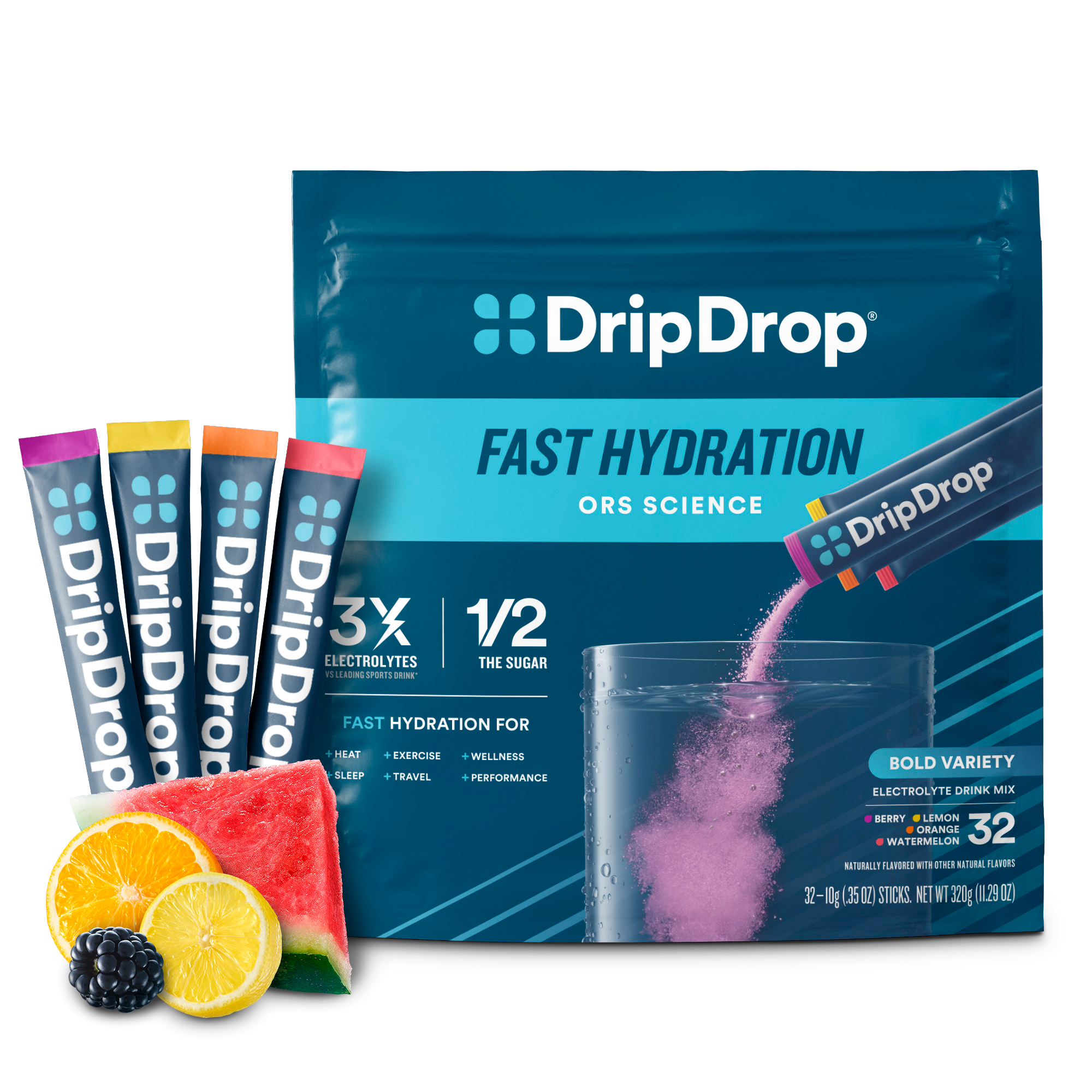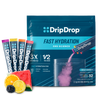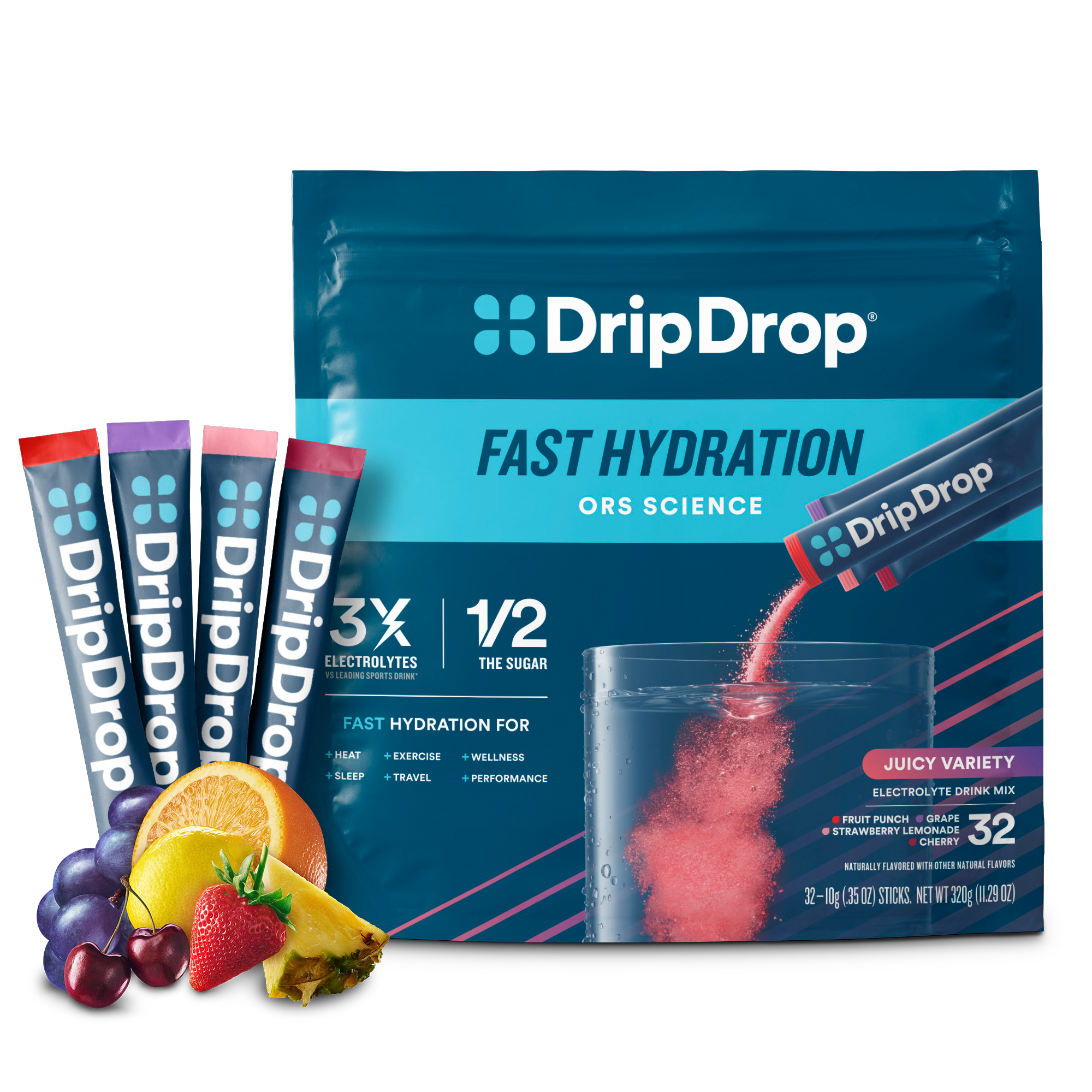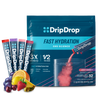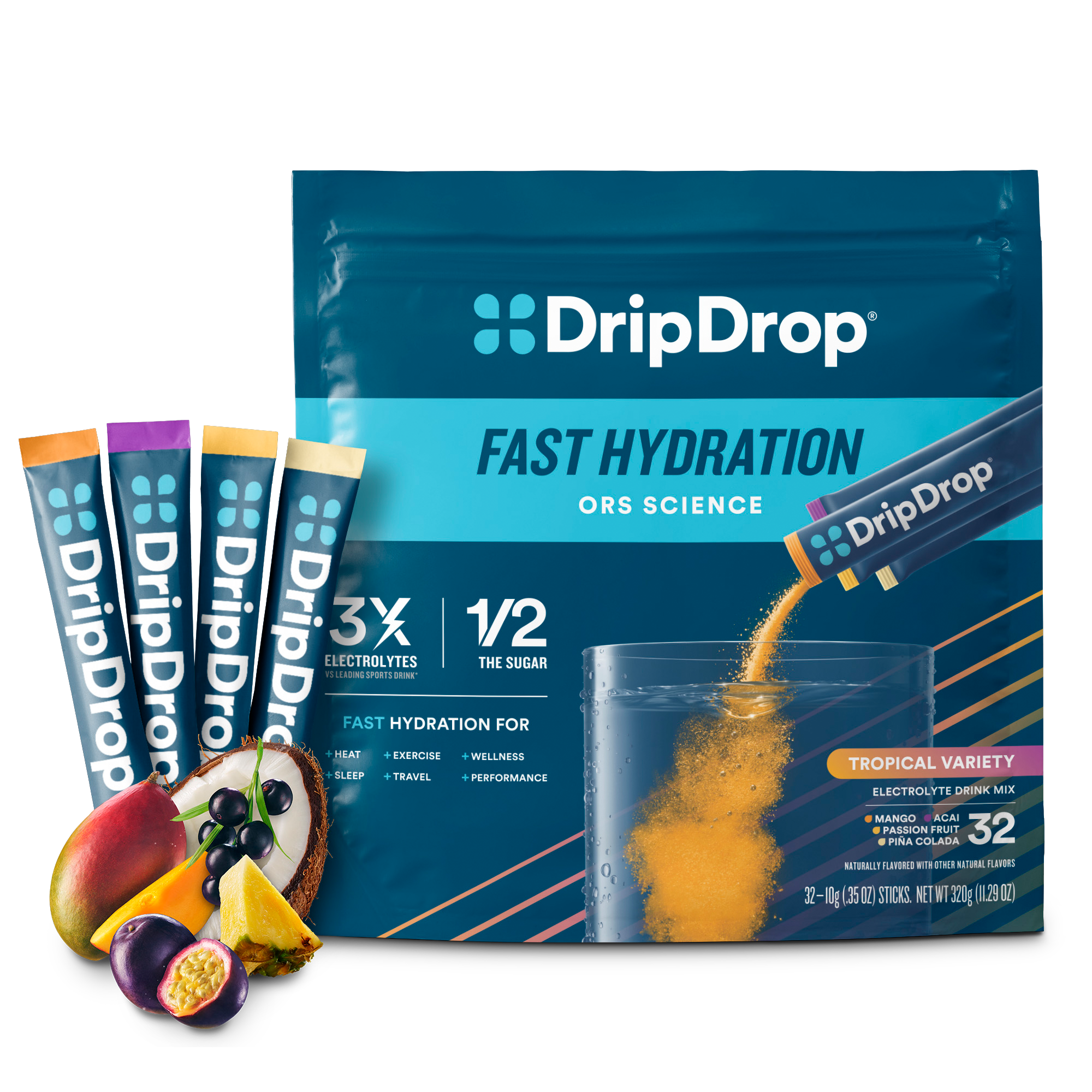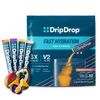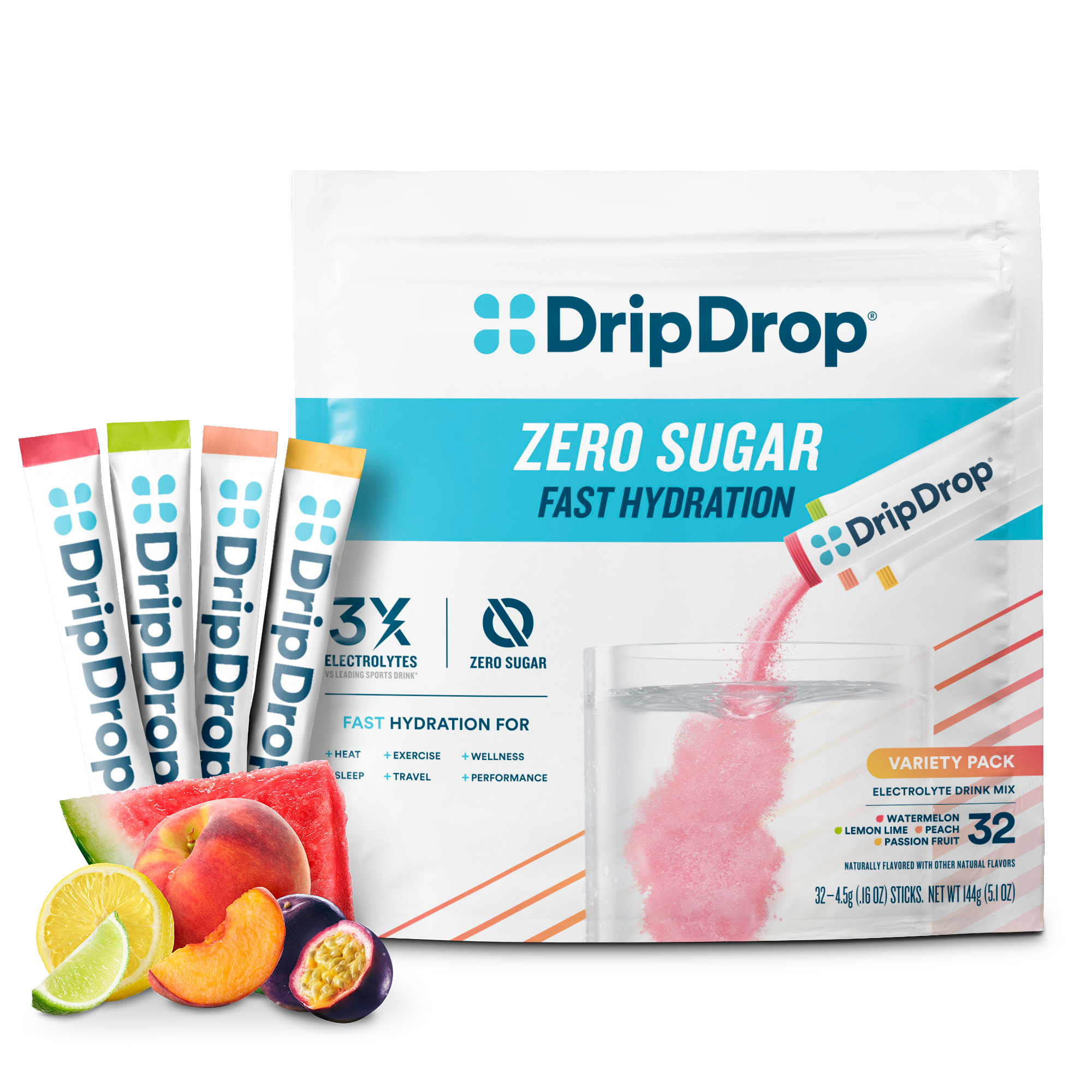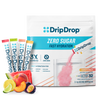When we talk about dehydration, many of us know how vital water is. However, what many people aren't aware of is the role sugar plays. As hydration science becomes more popular, people are starting to ask questions like “Does sugar dehydrate you?”
Here, we’ll explain the role of sugar in hydration. You’ll learn why you need a small amount of glucose to stay hydrated. But you’ll also discover how eating large amounts of sugary foods can be detrimental to your hydration status.
Does Sugar Dehydrate You?
Does sugar dehydrate you? Yes, sugar can lead to dehydration if you consume it in extremely high volumes. People who take certain medications such as diuretics for high blood pressure also have an increased risk of dehydration from excess sugar and sweeteners.
Here’s what happens when you eat extremely large amounts of sugar. In normal conditions, your body has a precise balance of fluid inside and outside of cells. This balance is often referred to as homeostasis. The fluid is made of water, electrolytes and nutrients. Your body uses a process called osmosis to move fluid and nutrients throughout your body. When there’s a shortage of fluids in one area, your body reacts by transporting the fluids from another area.
When you eat high amounts of sugary foods, your bloodstream absorbs that sugar from your gut. This results in an increased sugar concentration in your blood. In an attempt to restore homeostasis, your body responds by increasing the amount of water in your bloodstream. This water typically comes from inside your cells, but it can also be drawn from saliva, tears, and skin. As the water content in your cells decreases, dehydration sets in. This is why we experience signs of dehydration like dry mouth, dry skin, and an itchy throat.
High blood glucose levels can also cause dehydration by increasing urination. As your body tries to restore fluid and electrolyte balance, your kidneys produce more urine. Essentially, your body tries to flush out the excess sugar by eliminating it in your pee. As you urinate more, you also lose vital water and fluids. This can result in dehydration.
The answer to “Does sugar dehydrate you?” is “It depends.” It’s important to note that eating just a little extra sugar one time shouldn’t impact your hydration levels. The American Heart Association recommends no more than 25 grams of sugar per day for women and 36 grams of sugar for men. If you’re eating significantly higher amounts of sugar, you may be at risk for dehydration. Talk to a medical professional to find out how much sugar is right for you and other aspects of healthy eating.
Why You Need Sugar for Hydration
While sugar is often demonized, the truth about sugar isn’t black and white. Sure, eating large amounts of sugar can impact your hydration, but your body also needs sugars to stay hydrated. Sounds confusing? We get it — let’s break down the process. Here’s why you need a small amount of sugar to avoid dehydration:
When it comes to hydration, you need more than just water. Your body needs electrolytes like sodium, calcium, and potassium. These electrolytes are mineral ions that produce an electrical charge. This allows them to create electricity and send signals throughout your body. These signals enable muscle function, transmit instructions between neurotransmitters, and control water retention.
Sugar — glucose in particular — helps your body absorb these vital electrolytes through something called the sodium-glucose cotransport system. Glucose helps to open up your intestinal wall, drawing electrolytes like sodium into your bloodstream faster. Once inside, the electrolytes help to support water retention and restore hydration levels if you’re dehydrated. Without glucose, the process wouldn’t be as quick or efficient.
How Much Sugar Your Body Needs
So you need sugar, but how much? When it comes to dehydration, the human body needs a precise blend of sodium electrolytes and glucose to defeat the condition fast. In fact, drinking sugary drinks like sports drinks and fruit juices when you’re already dehydrated can make the condition worse if sugar is the root of your dehydration. That’s where oral rehydration solutions like DripDrop come in.
In the 1960s, medical scientists discovered that combining the right amount of sodium electrolytes and just a little glucose effectively triggered these mechanisms, crushing dehydration fast. This solution, called an ORS, contains about three times as many electrolytes and half as much sugar as you’d find in a sports drink. DripDrop contains just the right amount of sugar, so you can crush dehydration without worrying about consuming too much glucose.
The problem with traditional ORS is that they taste bad due to a large amount of sodium. As a result, many brands reduce the amount of sodium or increase the amount of sugar, reducing efficacy. DripDrop is different. Built on 50 years of ORS science, our fast, doctor-developed formula is designed for unparalleled speed, high efficacy, and great flavor.
The precise formula provides medically relevant electrolyte levels, improving on the World Health Organization’s Oral Rehydration Solution (ORS) standards. It's powerful enough to use in extreme circumstances but safe enough for everyday use. Plus, DripDrop supplies vitamins like zinc, potassium, and magnesium, which are essential to support your health.
How to Tell if You’re Dehydrated
Whether you just ate an extremely large amount of sugar and feel parched or you suffer from chronic dehydration, it’s vital to know the warning signs of dehydration. When you recognize the signs, you can take swift action to tackle the condition.
Here are the most common signs of dehydration:
-
Extreme thirst
-
Dark urine
-
Constipation
-
Dry mouth, dry eyes, or dry skin
-
Muscle cramps
-
Dizziness
Signs of severe dehydration include:
-
Fainting
-
Confusion and irritability
-
Sunken soft spot (infants)
If you recognize the signs of dehydration, it’s important to hydrate immediately. You can’t just settle with drinking a glass of water, though - you're also losing electrolytes like sodium. If you drink water alone, you’re missing out on many electrolytes, making this a less effective choice. Instead, take small sips of an oral rehydration solution like DripDrop.
Fight Dehydration With 25% off DripDrop
Consuming high volumes of sugar causes your body to transfer water from other cells and increases urination. This can lead to dehydration if you’re not careful. If you splurge on your sugar consumption, avoid dehydration by sipping an oral rehydration solution like DripDrop.
Keep in mind, sugar is only a concern for dehydration when consumed in extremely large amounts. Plus, you actually need a small amount of sugar to fend off dehydration. That’s why you’ll find a precise balance of glucose and sodium in DripDrop. These ingredients work to draw in fluids and electrolytes more quickly, helping to address dehydration fast.
When you're in a state of dehydration, drinking water alone is not enough. Your body doesn’t just need enough water. It needs the perfect balance of sodium and glucose to help absorption. With the precisely balanced ratio of sodium electrolytes and glucose in DripDrop's formula, you can replenish vital electrolytes and fluids to relieve dehydration quickly.
For cases of mild to moderate dehydration, DripDrop is a fast, effective, and great-tasting remedy. The convenient packaging allows you to have DripDrop when you need it, where you need it. Get started with our most popular multi-flavor pouch for dehydration relief fast. Or, learn more about how you can save up to 25% on every purchase when you subscribe.



